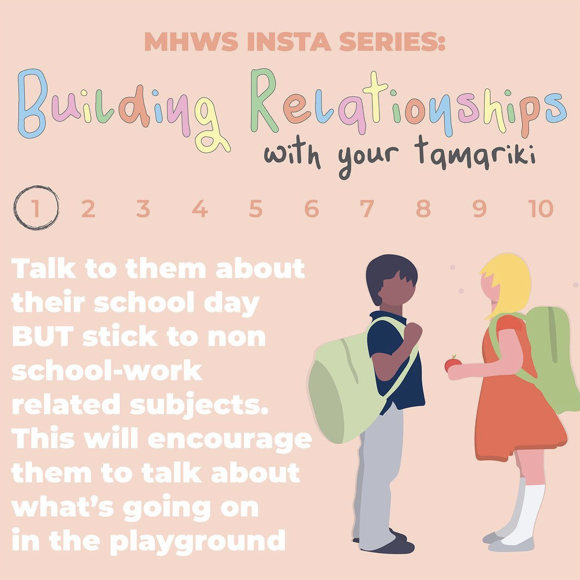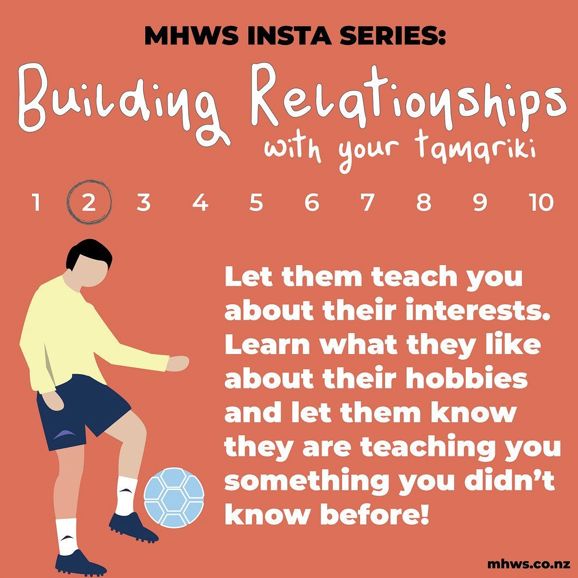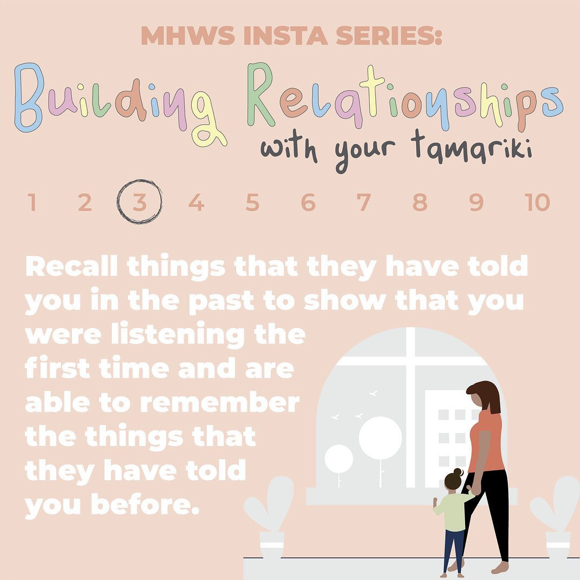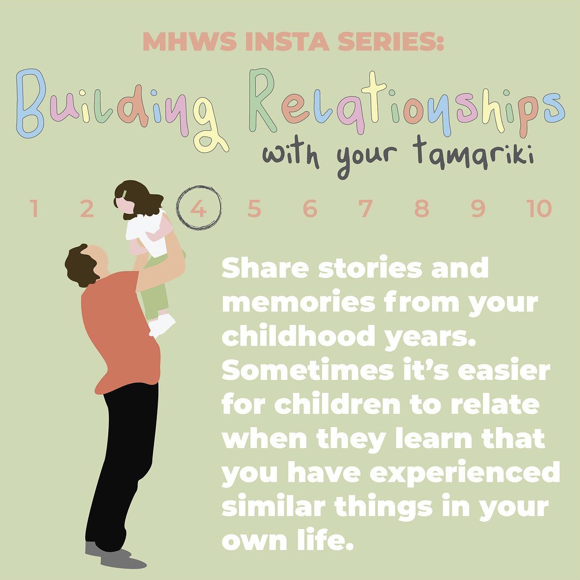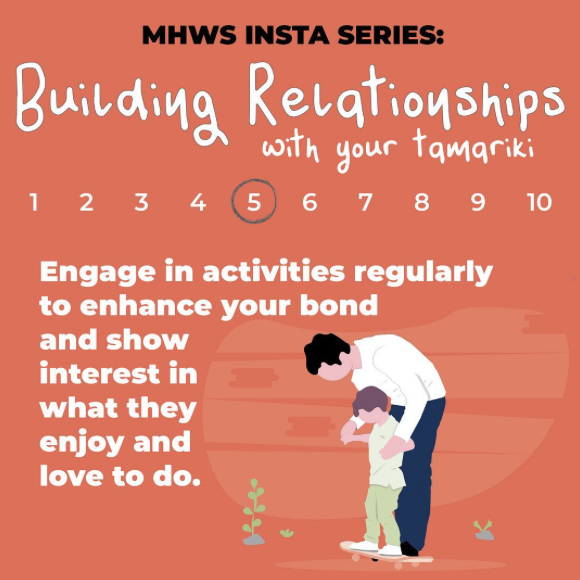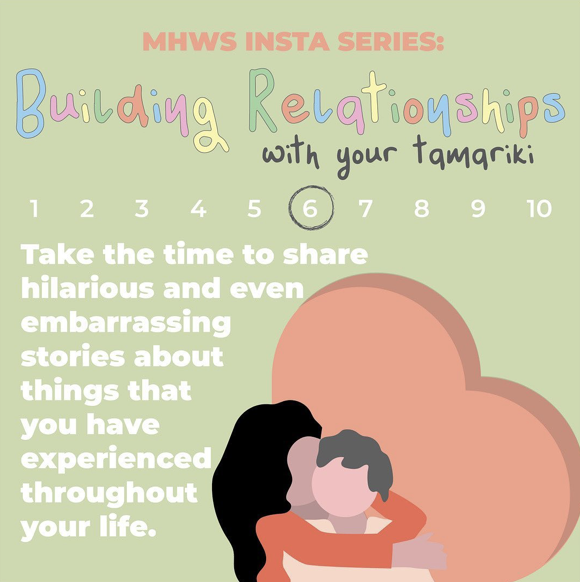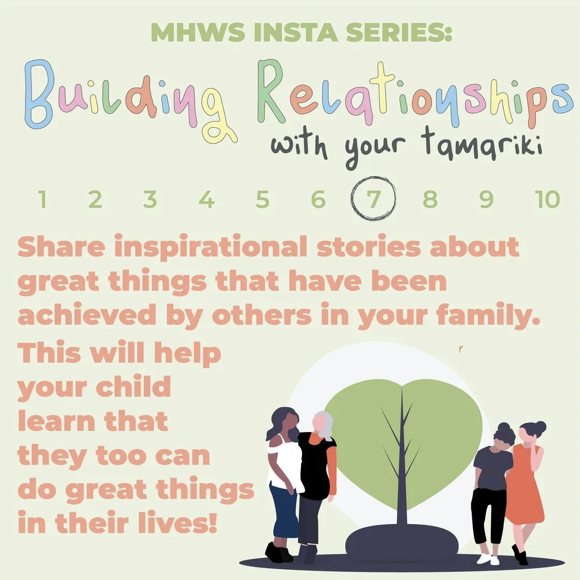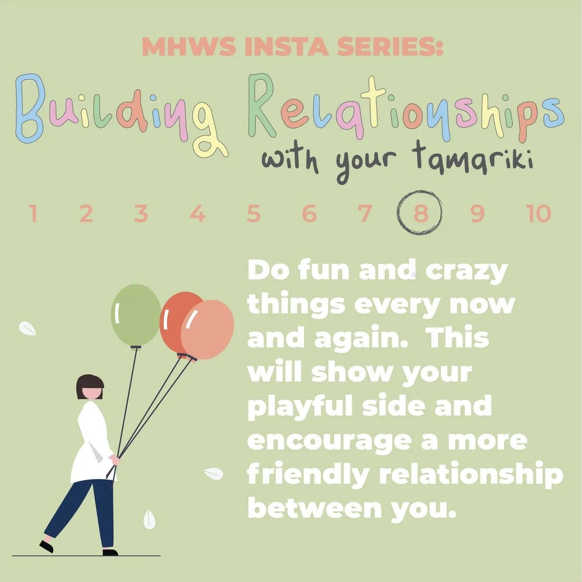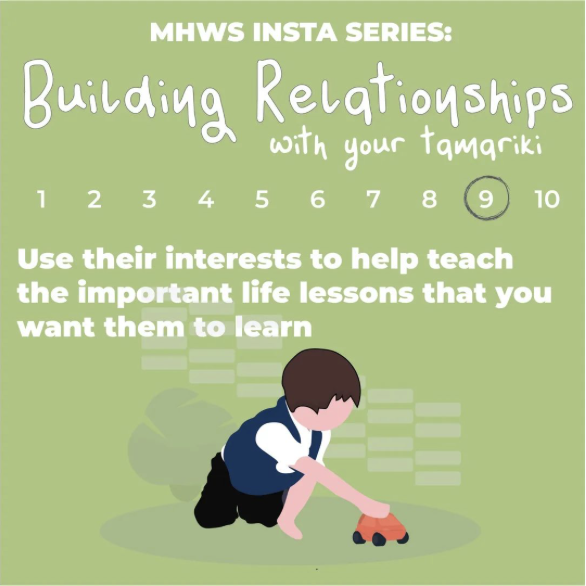Missed our Series on Building Relationships with your Tamariki?
See the posts here!
|
#1 Talk to them about their school day.
Talk to them about their school day, but stick to non school-related subjects. This will encourage them to talk about what's going on in the playground. ⠀⠀⠀⠀⠀⠀⠀⠀⠀ WHY IS THIS IMPORTANT? Often we show interest in how our kids are doing academically, and dismiss some of the emotional things that are going on at school. Talking about the things happening in the playground, however trivial they may seem to you, can open the doors for some honest conversation that will continue as they move into their teenage years. It will also give you a gauge on anything you might want to talk to the school about. |
#2 Let them teach you about their interests
⠀⠀⠀⠀⠀⠀⠀⠀⠀ Learn what they like about their hobbies and let them know that they are teaching you something you didn't know before! ⠀⠀⠀⠀⠀⠀⠀⠀⠀ WHY IS THIS IMPORTANT? Opening the conversations about what they enjoy encourages the child to lead the conversation. This will help as they get older for them to be able to communicate what they like and dislike about a situation. Letting your children know that you are learning from them helps break the adult/child stigma and helps them to learn how to converse as an equal. |
#3 Remember things they have told you
⠀⠀⠀⠀⠀⠀⠀⠀⠀ Recall things your child has told you in the past to show that you were listening the first time and are able to remember the things they have told you before. ⠀⠀⠀⠀⠀⠀⠀⠀⠀ WHY IS THIS IMPORTANT? One of the best ways you can show somebody that you are listening to them, and that what they have to say is important, is by recalling the things they have told you. What this does, is instills trust and confidence that they are allowed to feel and say the things that they have in their mind. Building this trust at a young age will help for years and years to come. |
#4 Share stories from your childhood
⠀⠀⠀⠀⠀⠀⠀⠀⠀ Share stories and memories from your childhood years. Sometimes it's easier for children to relate when they learn that you have experienced similar things in your own life. ⠀⠀⠀⠀⠀⠀⠀⠀⠀ WHY IS THIS IMPORTANT? It can be confusing for a little one to see their grown up role models as anything younger than adults. Sharing stories and memories from your childhood can help the child to see that you were once young too and they can be confident to share what's going on with them as you might have gone through something similar yourself. |
|
#5 Engage in fun activities together
Engage in activities regularly to enhance your bond and show interest in what they enjoy and love to do. ⠀⠀⠀⠀⠀⠀⠀⠀⠀ WHY IS THIS IMPORTANT? Sometimes the tough stuff is hard to talk about! If you engage in regular activities with your tamariki, you will find that they open up to you easier. Things that they want to talk about will come up in casual conversation, and because they are concentrating on the activity, they will find it easier to talk about things they might not otherwise feel confident talking about. |
#6 Share funny stories from your past
⠀⠀⠀⠀⠀⠀⠀⠀⠀ Take the time to share hilarious and even embarrassing stories about things that you have experienced throughout your life. ⠀⠀⠀⠀⠀⠀⠀⠀⠀ WHY IS THIS IMPORTANT? Sometimes it can be embarrassing for our children to confide in us about some things that might have not worked out quite right. If we take the lead, and tell embarrassing stories of our own, they will feel more comfortable sharing their stories when the time comes. Extra points if your story is funny, because that will teach the child that there can be a humourous side to our epic fails. |
#7 Share inspirational stories
⠀⠀⠀⠀⠀⠀⠀⠀⠀ Share inspirational stories about great things that have been achieved by others in your family. WHY IS THIS IMPORTANT? We all have someone in our families that we look up to. Whether it be a grandparent, an aunty, uncle, older cousin or even a close family friend. Having a role model other than a parent, has been proven to have a positive impact on childhood years. Sharing inspirational stories about what members of your family have achieved in the past can not only help your child form a role model opinion of these family members, but it can also help them learn that they too can achieve great things! |
#8 Do fun and crazy things
⠀⠀⠀⠀⠀⠀⠀⠀⠀ Do fun and crazy things every now and again! WHY IS THIS IMPORTANT? This will show your playful side and encourage a more friendly relationship between you. Having a caregiver who is also a friend, makes it easier to confide in and talk about the tough stuff. It removes the barriers of parent vs child. Pull funny faces, build a fort inside and watch a movie together, go outside and make a mudcake, anything you can think of that will surprise and excite your little one! |
|
|
#9 Use their interests to teach
Use their interests to help teach the important life lessons that you want them to learn. WHY IS THIS IMPORTANT? Sometimes it’s hard for little ones to understand just what it’s like being an adult. Studies have shown that children have more success in learning when their lessons are related to something they are passionate about. |
#10 Apologise when you mess up
⠀⠀⠀⠀⠀⠀⠀⠀⠀ Apologise when you mess up. ⠀⠀⠀⠀⠀⠀⠀⠀⠀ WHY IS THIS IMPORTANT? Nobody likes making a mistake, or admitting when they were wrong. You can be a positive role model for you young one, by making sure you acknowledge when you mess up, and talk about how your actions affected other people. This will teach them that it is ok to make a mistake, and important to apologise when you hurt someone’s feelings, even if it wasn’t intentional. |
|

